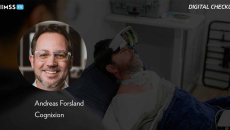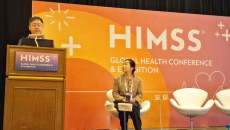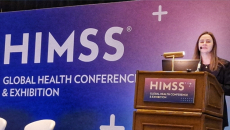Medical Devices
The government sees this approval as allowing pharmacies to replace their paper-based registers.
Cognixion has created a non-invasive brain-computer interface that works alongside AI and augmented reality to help ALS and traumatic brain injury patients communicate. Andreas Forsland, CEO and cofounder, offers a deep dive.
AI-powered remote monitoring using low-cost, disposable sensors can help VA clinicians spot potential issues and intervene to encourage veteran patients to stay compliant, says Kent Dicks, CEO of Life365.
Also, Tan Tock Seng Hospital has introduced a new AI-powered mobile diabetes application.
Automated robots has removed administrative burden and allowed nurses to focus more time on direct patient care.
Smart TV's are giving patients the ability to control their environment.
Dr. Tabitha Offutt-Powell said the technology is evolving, but with that comes challenges and limitations.
Also, IIT Madras recently launched a cancer genome database.
Also, The Alfred Hospital implemented a new surgical system for minimally invasive procedures.







